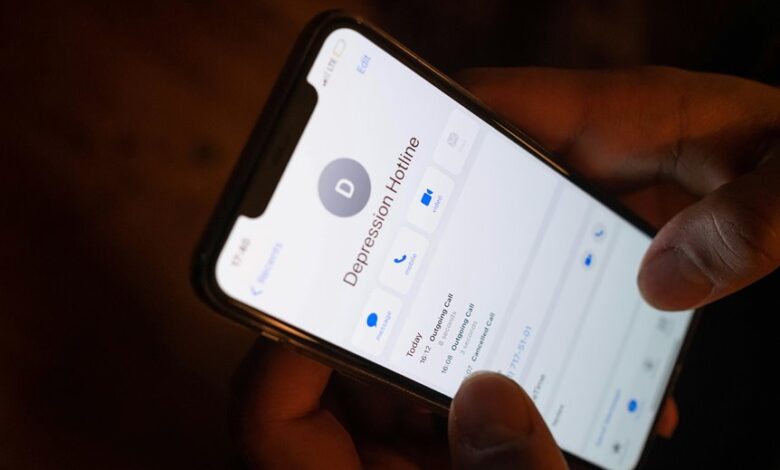24-Hour Help Hotline Numbers: 2065826344, 2085153325, 2096458266, 2103618931, 2103978578, 2106402196

In times of distress, 24-hour help hotlines can be a vital resource. They connect individuals with trained professionals who understand the complexities of mental health and emotional crises. These hotlines offer a safe, confidential space for sharing concerns. However, many may hesitate to reach out, unsure of what to expect. Understanding the nuances of these services can empower individuals to take that crucial first step towards support and healing. What happens when one decides to call?
Understanding the Importance of 24-Hour Help Hotlines
Help hotlines serve as vital lifelines for individuals in distress, providing immediate access to support and resources.
Their effectiveness hinges on trained professionals who offer empathy and understanding.
Community outreach initiatives raise awareness about these services, ensuring that those in need can find help.
How to Reach Out for Support
Reaching out for support is a vital step in navigating difficult times, and understanding this importance can empower individuals to seek help.
Selecting the right hotline that aligns with personal needs is crucial, as it ensures a more effective and comforting experience.
Importance of Seeking Help
Acknowledging the need for support is a crucial step in navigating life’s challenges.
Individuals often face difficulties that can impact their mental health, making seeking assistance essential. Reaching out for help not only fosters personal growth but also promotes resilience.
It empowers individuals to find the freedom to heal, connect with others, and embrace a healthier, more fulfilling life.
Choosing the Right Hotline
Finding the right hotline can be a pivotal step for individuals seeking support during challenging times. Important hotline selection criteria include the availability of trained professionals, specific focus areas, and confidentiality. Evaluating hotline effectiveness involves assessing user feedback and response times. The following table provides a quick overview of key factors to consider:
| Criteria | Importance |
|---|---|
| Professional Training | Ensures quality support |
| Specialization | Tailored assistance |
| Confidentiality | Builds trust |
| Availability | Immediate access |
| User Feedback | Indicates effectiveness |
What to Expect
For those who have chosen a hotline that aligns with their needs, understanding what to expect during the initial contact can help alleviate anxiety.
Call preparation is essential; jot down thoughts or concerns to express clearly. Practicing hotline etiquette, such as being open and respectful, fosters a supportive environment.
Types of Issues Addressed by Help Hotlines
Help hotlines play a vital role in providing support for a range of issues that individuals may face.
These services often include emotional support for those experiencing distress and crisis intervention assistance for urgent situations.
Emotional Support Services
Emotional support services provided by help hotlines play a crucial role in addressing a wide array of mental health concerns.
These services focus on enhancing emotional well-being by offering a safe space for individuals to share their feelings and experiences.
Whether dealing with stress, anxiety, or loneliness, help hotlines empower callers to navigate their emotional challenges and foster resilience.
Crisis Intervention Assistance
Crisis intervention assistance provided by help hotlines addresses a variety of urgent issues that individuals may face during difficult moments.
These hotlines offer support through crisis management strategies and emotional resilience techniques, empowering individuals to navigate their challenges.
What to Expect When You Call a Hotline
When someone decides to reach out to a hotline, they can expect a compassionate listener on the other end, ready to provide support without judgment. Understanding hotline etiquette ensures a respectful interaction, while caller anonymity fosters a safe environment for sharing.
| Aspect | Description |
|---|---|
| Listener Approach | Compassionate and non-judgmental |
| Confidentiality | Caller anonymity is prioritized |
| Support Offered | Emotional and practical assistance |
| Response Time | Immediate engagement |
| Empowerment Focus | Encouraging personal freedom |
Tips for Making the Most of Your Call
How can callers ensure they get the most out of their hotline experience? Effective call preparation is essential; jot down key points to discuss.
During the call, practice active listening, allowing the counselor’s insights to resonate. This approach fosters a supportive environment, empowering individuals to articulate their concerns freely, ultimately enhancing the quality of assistance received and paving the way for personal growth.
Additional Resources for Ongoing Support
Numerous resources are available to provide ongoing support for individuals seeking continued guidance after their hotline experience.
Peer support groups offer safe spaces for sharing experiences and building connections, while online resources can provide valuable information and tools for personal growth.
These avenues empower individuals to navigate their journeys, fostering resilience and independence as they seek lasting healing and freedom.
Conclusion
In the vast sea of life’s challenges, 24-hour help hotlines act as guiding lighthouses, illuminating the path to hope and healing. By reaching out to these compassionate professionals, individuals can find solace in their darkest moments. Each call is a step toward empowerment, reminding us that no one has to navigate their struggles alone. Embracing support is like opening a door to brighter tomorrows, where understanding and healing await just a phone call away.




